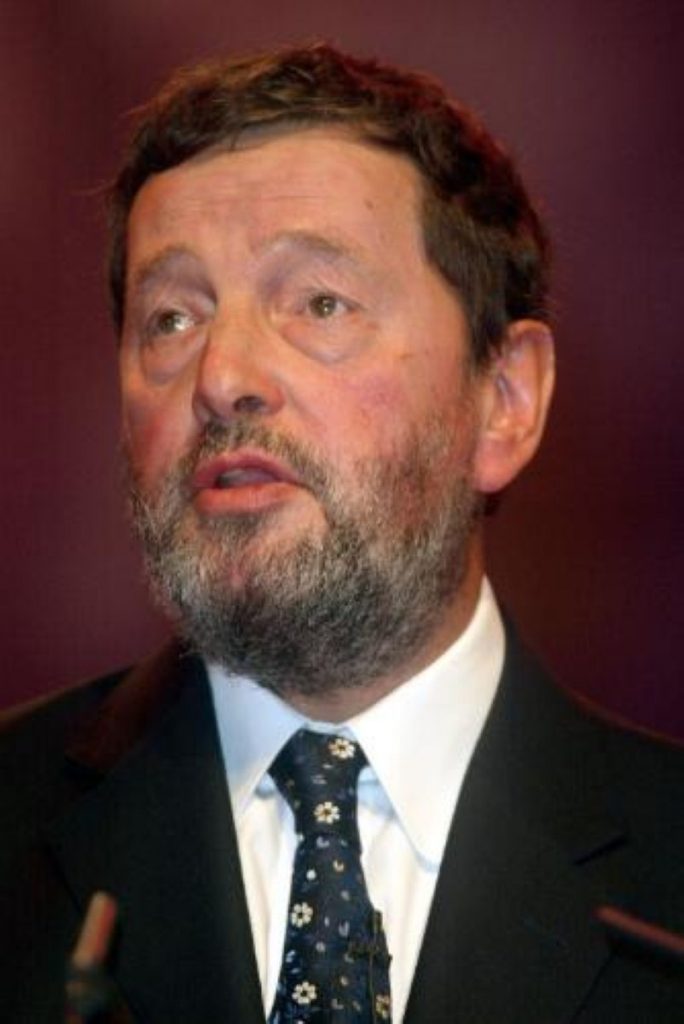Terror suspects lose appeal
12 foreign nationals held in the UK under anti-terrorism legislation have lost their appeal against their detention.
Home Secretary David Blunkett said: “I am pleased that my decision to certify these individuals as suspected international terrorists who pose a threat to our national security has been upheld by the Court of Appeal.”
The 12 men were detained under the 2001 Anti-Terrorism and Security Act, which gave the Home Secretary the power to hold foreign nationals without trial if there are “reasonable grounds” to suspect them of involvement in terrorist activities.
The powers are controversial, as they require the Government to opt-out of certain provisions of the ECHR. Last week a group of MPs and Peers urged the Government to end the indefinite detention as a “matter of urgency”.


Those held have the right to leave the UK and appeal to a Special Immigration Appeals Commission (SIAC) against their detention. Today’s appeal was against the decision of an SIAC last October that the Government had sufficient evidence to justify holding the men.
Two of the 12 men have now left the UK, but campaigners argue that returning home is not a viable option for the men.
Lawyers for the men alleged in court that the evidence against the suspects had been obtained through the use of torture in Guantanamo Bay and as such should not have been admitted by the SIAC. Ben Emmerson, QC, told the court that “to rely on evidence like this is morally repugnant”
The appeals, however, were rejected by the Court in an extensive written ruling. The details of the ruling are still being digested but, according to Sky, it ruled that it was unrealistic to expect the Home Secretary to investigate every statement to see if it was obtained through a breach of Article Three of the European Convention on Human Rights which states an individual should not be subject to “inhumane or degrading treatment”.
Providing the Home Secretary is acting in good faith, the judges said they must be mindful of his responsibilities to maintaining national security. As such, they ruled that no evidence has been brought to their attention that would amount to the misuse of state power.
The campaign group Liberty has backed the men’s case. It launched a petition calling for the men to be charged, given a fair trial or released without delay. It argues that “this internment offends every notion of justice, equal treatment of people and the rule of law. It sets a terrible example for other states and provides ammunition for those who seek to present our way of life as hypocritical and corrupt.”
In a detailed response to the judgement, Mr Blunkett said that he had only used the detention powers “sparingly and proportionately in only the most serious circumstances, to prevent foreign nationals who we believe are international terrorists, but are unable to deport, from remaining at large in the UK.
“The points of law on which SIAC’s determinations have been challenged – namely the level of scrutiny applied by the Commission when considering the appeals against certification, and the scope of derogation from Article 5 (the right to liberty) of the European Convention of Human Rights, were unanimously rejected by the Court of Appeal.”
Regarding the allegations that the cases relied on information that may of been obtained under torture, Mr Blunkett stated: “Let me make it clear, we unreservedly condemn the use of torture and have worked hard with our international partners to eradicate this practice.
“However, it would be irresponsible not to take appropriate account of any information which could help protect national security and public
safety. The Court of Appeal have upheld the position taken by SIAC and I welcome Lord Justice Laws’ clarification that there was no evidence in any of the appeals which should have persuaded SIAC that material I relied upon had been obtained by torture or other treatment in violation of Article 3 of the European Convention of Human Rights.
“I want to stress that we provided in the Act for appeal rights (including to the Court of Appeal) which have been exercised by the detainees. This demonstrates that it is grossly untrue to suggest that we have removed from these detainees rights to the scrutiny of the judicial
process.”
The men have until noon on Friday to decide whether they want to appeal against the ruling. Any appeal would then be heard by the UK’s highest court, the House of Lords.

